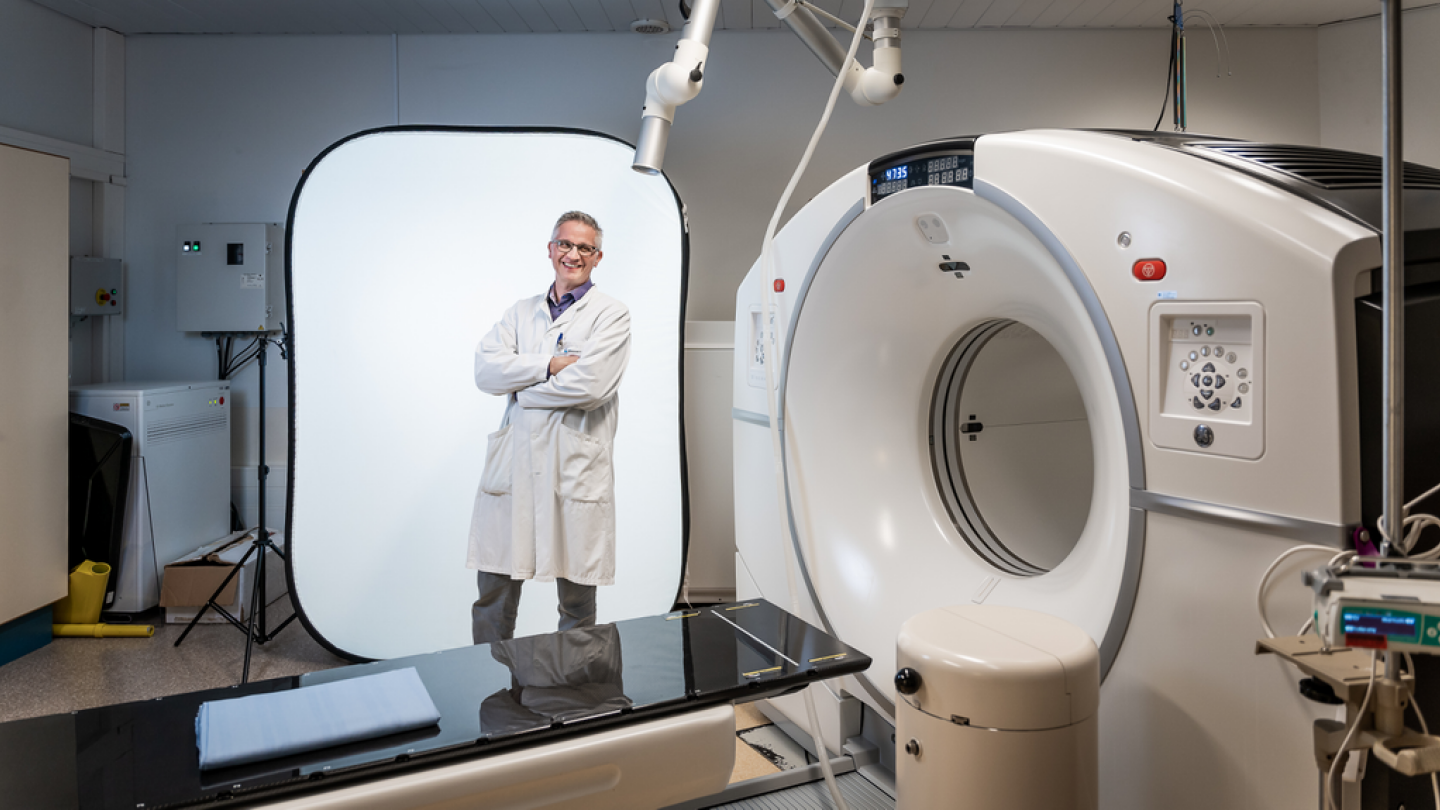InFLAMES (Innovation Ecosystem based on the Immune System) is a Finnish research flagship that aims at identifying novel drug targets using the most modern technological platforms and finding novel diagnostic tools to identify the patients benefitting from personalised therapies.
Many of the illnesses studied at the Turku PET Centre are chronic inflammatory diseases and the Centre is an integral part of the InFLAMES Flagship. Director of the PET Centre, Professor Juhani Knuuti, is also the Vice-Director of the Flagship and he won the State Award for major scientific information publication work in 2021.
As the fields and tools of medicine and immunology have progressed, researchers have discovered that many long-term illnesses are in fact inflammatory diseases. A good example of this is Juhani Knuuti’s research subject, coronary artery disease.
In coronary artery disease, plaques build up in the coronary arteries and constrict the vessels. In addition to limiting the blood flow to the heart, the plaque is often inflamed and has a thin cap, which is vulnerable for a rupture. When the plaque ruptures, it causes a blood clot, which in turn blocks the artery and triggers a heart attack.
– We can detect the inflammation in the plaques with positron emission tomography (PET), and detect the ones that are prone for rupture. This information could be used in studying the effectiveness of new treatments and possibly also in treatment referrals. In the future, it may be possible to reduce the inflammation in the plaques with drugs and therefore prevent plaque ruptures in patients with coronary artery disease, envisions Professor Knuuti.
Now, new and exciting paths are open for studying diseases and drug development as the PET Centre acquired a new, full-body PET scanner. The scanner images everything that is going on in the body at one go. The acquisition was made possible by a five-million-euro grant from the Jane and Aatos Erkko Foundation in addition to the support from host institutions.
Together Towards New Horizons
Inappropriate inflammation and immune-mediated diseases can occur when the immune system is not functioning correctly or attacks the wrong target. Inflammatory reactions can be detected with PET imaging. Therefore, PET can be used to decipher the progress of multiple sclerosis in the brain, mechanisms of cancer, or the role of inflammation in autoimmune diseases.
– It is an enormous benefit to us that InFLAMES provides a network for researchers and research groups who have great deal of expertise and conduct basic research in inflammatory diseases and the immune system. It boosts the research conducted at the PET Centre and vice versa.
By crossing different disciplines, InFLAMES can open new avenues for research and discoveries, Knuuti believes. In the course of his career, Knuuti has noticed that discoveries often lead the researchers to the boundaries shared with other disciplines.
– Therein lie the new horizons of science, waiting to be discovered.
Markers Are the Makers of Success
The success factor of the Turku PET Centre are the dozens of radioactive markers produced at the Centre and used by the researchers. The markers define what the PET scanner detects. Radiopharmaceuticals are crucial in future PET diagnostics. The first radiopharmaceutical for PET imaging developed entirely at Turku, Siglec-9, has already proceeded to clinical trials. The drug was developed by the research group led by Professor Anne Roivainen in collaboration with the Director of InFLAMES, Academician Sirpa Jalkanen.
Siglec-9 is a marker that is used for observing the traffic of white blood cells from blood vessels to the tissue. White blood cells are part of the immune defence. For example, in rheumatoid arthritis, white blood cells are too active and cause severe inflammation in the joints. Siglec-9 is currently investigated in the diagnosis of rheumatoid arthritis.
– The more reliably we can assess the activity of the inflammation, the better we can treat it and monitor whether the treatment is working, Professor Knuuti summarises the significance of Siglec-9.
InFLAMES Flagship is a joint initiative of University of Turku and Åbo Akademi University, Finland. The goal of the Flagship is to integrate the immunological and immunology-related research activities to develop and exploit new diagnostic and therapeutic tools for personalised medicine. InFLAMES is funded by Academy of Finland.






